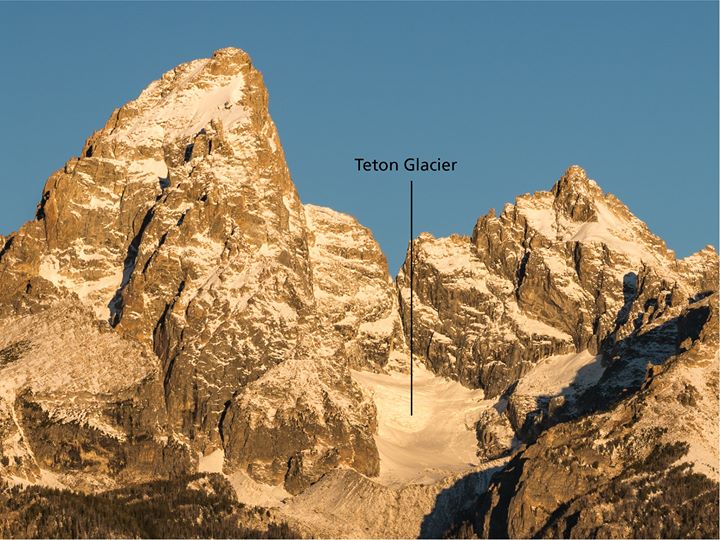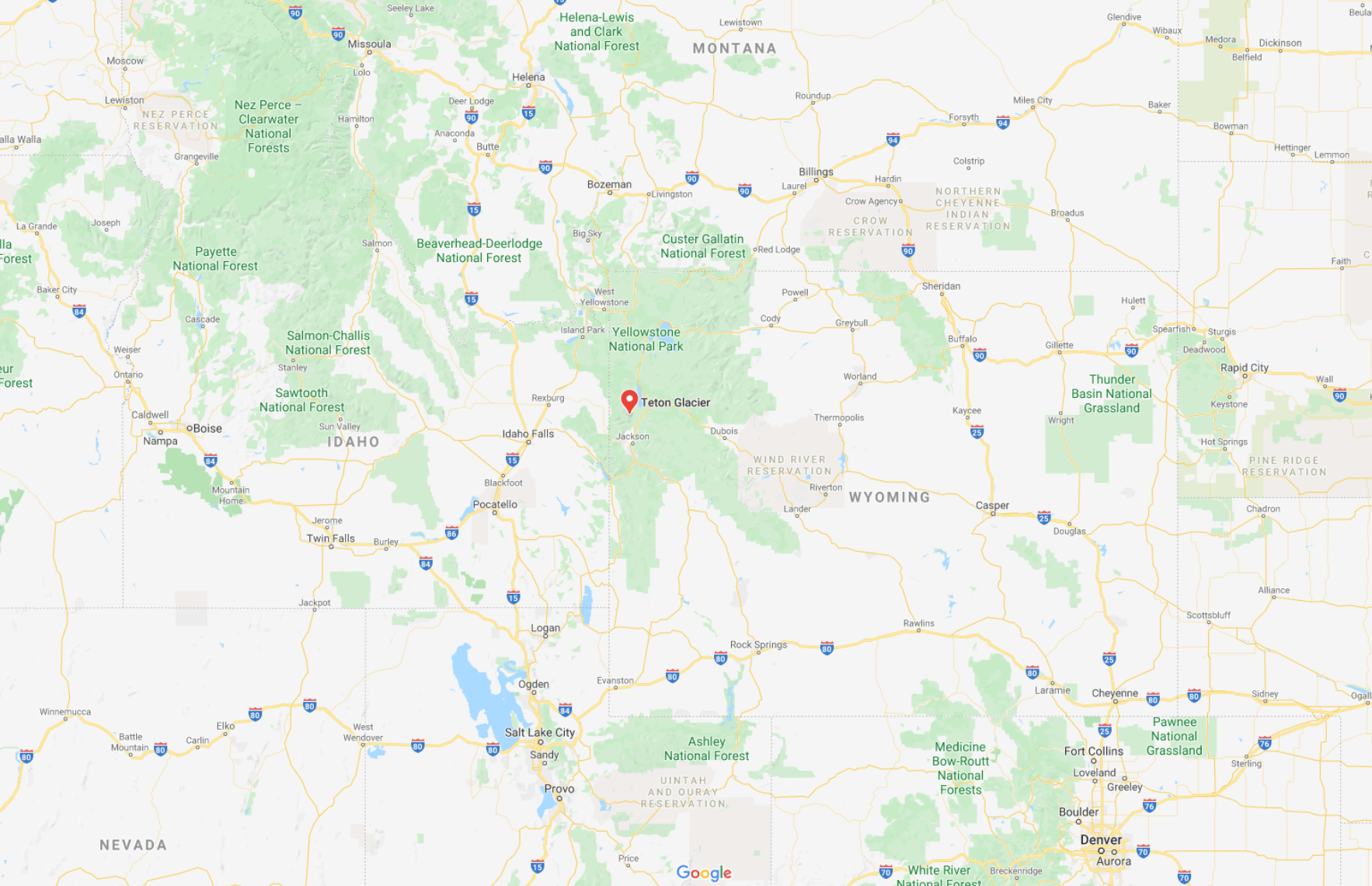
Teton Interagency Dispatch Center received a “fall into crevasse” notification from a satellite communication device at approximately 10:30 p.m. on Friday, August 7. The message included some GPS coordinates that indicated the incident was near the Teton Glacier. Despite additional attempts to establish two-way communications with the reporting party, no more information was provided.
Two park rangers began hiking to the Teton Glacier at approximately 12:30 am and at 4 am located the injured party and his hiking partner, along with another climbing party of two who were in the area and assisting with the injured climber.
Tyler Willis, age 34 from Evanston, Wyoming, and his climbing partner had successfully summited Mount Owen earlier in the day. They were descending via the Koven Route and crossing the Teton Glacier when Willis fell approximately 30 feet into a narrow ice crevasse. Two other climbers were in the area and used their satellite communication device to call for help and then set anchors and used a rope raising system to extricate Willis from the crevasse.
Willis had been in the crevasse for over an hour before the other party of two came on the scene to assist. His condition had significantly deteriorated due to hypothermia and he was unresponsive. After extricating Willis, the three climbers replaced his wet clothing with dry clothing.
When park rangers arrived on the scene, they provided medical care and re-warming treatment, including adding additional insulating layers to warm him. Willis’s condition slowly improved over the next few hours.
At approximately 8 am on Saturday, August 8, Willis was transported via short-haul rescue by the Teton Interagency Helicopter to Lupine Meadows and then transported via Air Idaho Rescue to Eastern Idaho Regional Medical Center in Idaho Falls, Idaho. The three other climbers were transported to Lupine Meadows by helicopter.
Teton Glacier is the largest of eleven glaciers in Grand Teton National Park. It is located below the north face of the Grand Teton and is approximately 50 acres in size. Glaciers are dynamic and always moving. Anyone climbing near glaciers should always be very cautious and expect glacial features including crevasses.
Short-haul is a rescue technique where an individual or individuals, often with gear, are suspended below a helicopter on a 150 to 250-foot rope. This method allows a rescuer more direct access to an injured party, and it is often used in the Teton Range where conditions make it difficult to land a helicopter in the steep and rocky terrain.
